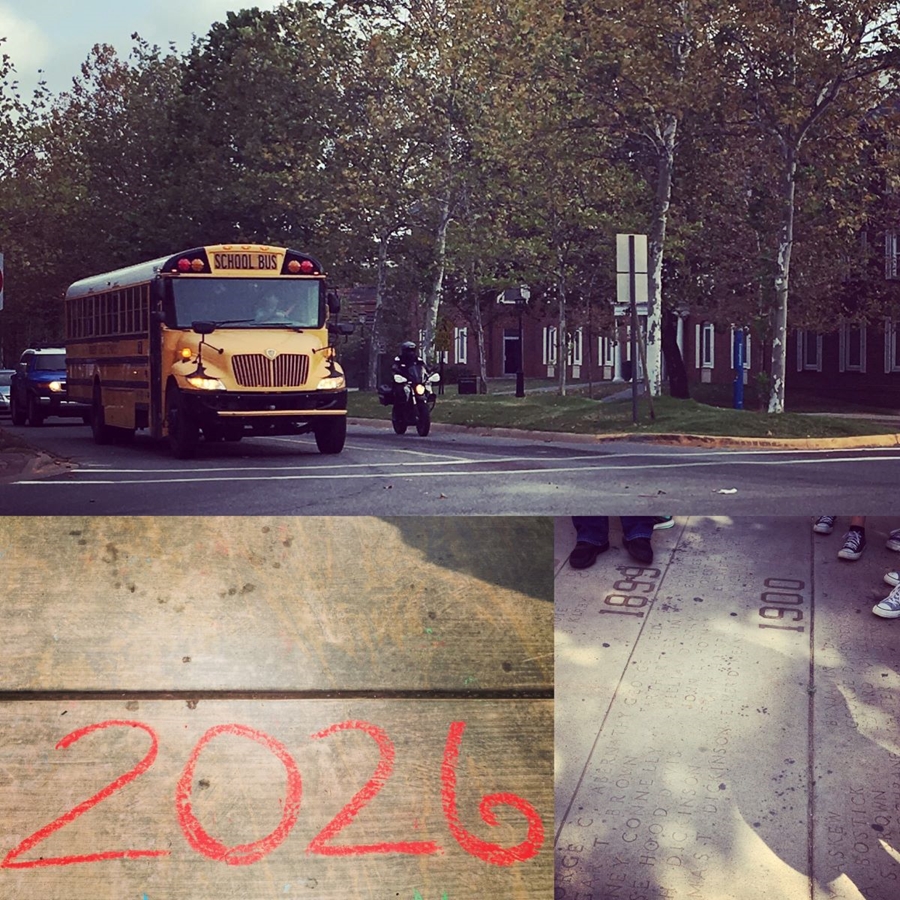
A new study released by a team of researchers in the Department of Education Reform indicates that students who visited the University of Arkansas on multiple field trips as eighth graders began to prepare for college, possibly paving the way for enrollment in the future.
Over a 2-year period, the researchers worked with nearly 1,500 students in multiple low-income schools in the Northwest Arkansas region. They explored the idea that even if students have the financial resources and information necessary to attend college, they may be less likely to enroll if they don't feel they belong on a college campus.
Researchers include former education reform doctoral students Elise Swanson and Katherine Kopotic, faculty member Gema Zamarro, research assistant Jonathan Mills, and department chair Jay Greene. Former faculty member Gary Ritter was also instrumental in the initial research.
The study results were published this month in the journal AERA Open. Students who participated in the visits retained more information about college, exhibited more diligence, began having more conversations about college, and were more likely to enroll in advanced math and science/social science courses in ninth grade.
The education reform department — part of the College of Education and Health Professions — developed, operated, and paid to bring two cohorts of students to campus for three different intentional field trips. The study was randomized, with some of the students being placed in a control group and only receiving an informational packet.
The students attending the campus visits were chosen through a lottery system. The study targeted schools where a majority of students qualify for free or reduced-price meals and those with a high proportion of minority students. As a result, the majority of student participants came from homes where neither parent had a college degree.
Other studies have focused on determining if financial aid, information, and assistance navigating bureaucratic processes could address access gaps between historically advantaged and disadvantaged students. But U of A researchers wanted their intervention to address the understudied barrier to college access: limited tangible experience with higher education institutions.
"The study suggests that visiting campus and interacting with current students, faculty, and university staff increased decided behaviors that help better prepare students for college," said Zamarro.
Greene said the College of Education and Health Professions' dean has made diversity and opportunity a priority.
"This successful program and evaluation is a good example of how the education reform department and our college are addressing those goals," he said.
The research team collaborated with several programs on campus to give students a taste of various aspects of campus life. On their first visit, the eighth-graders met with student ambassadors from the U of A college admissions office for a tour that highlighted campus traditions, history and unique buildings.
On their second visit, students participated in interactive, content-specific activities with several academic departments and learned about different degree paths that interested them. Students also toured dorms.
The final visit aimed to foster a sense of campus spirit. Students could attend either an official baseball game or compete in an on-campus scavenger hunt. Students ate in Brough Commons for each visit to round out the college experience.
The study suggests that early outreach to middle and high schools could be an effective investment for university admissions offices. Counselors working in middle and high schools could partner with nearby institutions for opportunities for students to visit, researchers noted.
Researchers will continue to follow the students' progress through administrative records to assess whether the U of A visits encouraged students to pursue higher education.
About the University of Arkansas Department of Education Reform: The mission of the Department of Education Reform is to advance education and economic development in Arkansas and nationwide by focusing on the improvement of K-12 schools. The Department of Education Reform, in the College of Education and Health Professions, is committed to producing and disseminating high-quality research that will inform policymakers, scholars, parents, teachers, administrators and the general public about policies and practices that could improve the performance of schools in Arkansas and nationwide.
Topics
Contacts
Shannon G. Magsam, director of communications
College of Education and Health Professions
479-575-3138, magsam@uark.edu